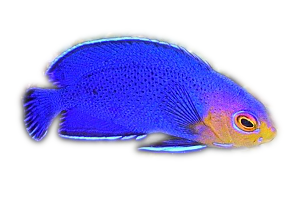
By Bob Goemans

Likely Reef Tank Suitable
Likely Fish-Only Tank Suitable
Range: Indo-West Pacific Ocean: Red Sea to Australia.
Size: 0.75 inch (2 cm)
Natural Environment: Inhabits shallow rocky coastlines, back reef areas, seagrass beds, and lagoons where microalgae exists.
General Husbandry: Rarely seen being offered in the home aquarium trade, and usually arrives attached to a coral specimen or live rock collected from the areas it inhabits.
One of the more odd looking snails, as many mistake it for a nudibranch/slug. Even though many call it a "shell-less" snail, that is incorrect as it does have a small, flattened, cap-like shell on top of its body that is covered by flesh. If its general appearance was not odd enough, when disturbed it drops the rear portion/tail area of its body, similar to what some desert lizards do when frightened. And the detached portion twists and turns so as to attract the predator while the main body moves away at an amazingly fast speed!
Generally a nocturnal herbivore, yet specific diet information is still unknown. However, it seems to be quite safe in reef tanks and requires no special care, at least known at this time. Also seems to multiply quite quickly, as the number in my small nano tank have increased from just two a few months ago to 'many' at this writing. However, if the aquarium had predators such as shrimp or crabs (including hermits), its population would dwindle.
These small snails generally feed upon microalgae and small particulate matter that coat various types of substrate by using a rasping motion of its mouth parts.
Colors vary, e.g., brown, brownish-green, tan, gray, black, or mottled, depending upon area of origin.
Taxonomy:
Kingdom: Animalia
Phylum: Mollusca
Class: Gastropoda
Family: Trochidae
Genus: Stomatella
FYI: Not fussy about water quality requirements, yet appears to be sensitive to changes in specific gravity, therefore, acclimate carefully before transferring new specimens to your aquarium. (Salinity is the correct term for measuring a natural salt level in the wild, and specific gravity is the correct term for artificially prepared seawater.)
Recommend one per five gallons.
Was previously listed as Stomatella varia, (A. Adams, 1850).
Experience Level: Beginner
Diet: Herbivore
Temperament: Peaceful
Aquarium Environment: Reef or fish-only aquarium
Coral Safe: Yes
Fish Safe: Yes
Invertebrate Safe: Yes
Acclimation Time: Sensitive to specific gravity/salinity changes, therefore be sure to adjust the bag's water to that of the aquarium in which it will be placed by slowly adding small amounts of aquarium water to the bag every few minutes. In most cases, this process should take at least 15 minutes.
Aquarium Hardiness: Moderately hardy
Temperature Range: 74 - 83°F (23 - 28°C)
Minimum Tank Size: 20 gallons
Water Movement: WM 1 - 2
Specific Gravity: 1.023 - 1.025
pH: 8.0 - 8.4
